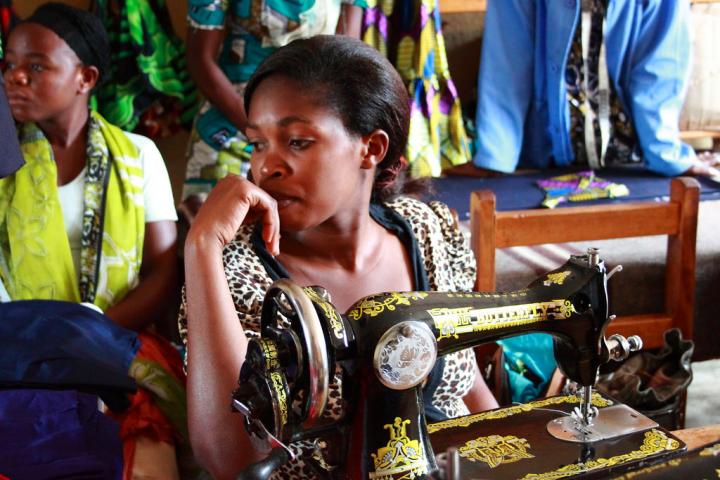
“Mary” (not her real name) was abducted by the Lord’s Resistance Army (LRA) when she was nine years old. She was assigned to be a maid and “wife” for Joseph Kony, the leader of the LRA, and later for another LRA commander. During her captivity, which lasted 11 years and forced her to travel with the LRA into Sudan and the DRC, she was abused, tortured, and severely beaten.
In 2010, after 11 years with the LRA, Mary managed to escape, along with a child she had delivered while in captivity. Just a few months after escaping, she was raped by three members of the Uganda People’s Defence Force while returning from a wedding celebration; she became pregnant as a result and gave birth to another child.
Mary’s history and status as a mother made her “un-marriageable.” She tried to report the rape to the local police but was not given a hearing, and feeling powerless, given up. She could not return to her home, as her parents had both died and relatives had taken over her father’s land. She moved away from where she was and settled on a small piece of land given to her by her uncle.
When CVT identified Mary, she reported suffering from psychological symptoms such as flashbacks, nightmares, general fear in relations, and specific phobias related to uniforms and watching beatings (for instance of children). She was feeling strongly stigmatized by the community around her.
CVT offered her counselling, with the objective of helping her overcome her fears, recover her dignity, and empower her to seek justice. Mary responded very well to counselling, showing herself to be resourceful, intelligent, motivated to improve, and capable of thinking critically and speaking openly.
After five sessions of therapy with the CVT psychotherapist and a counsellor being trained by CVT, Mary’s symptoms and fear subsided substantially. She remained determined to seek justice, despite having experienced rejection from the agencies she had previously approached. She tried again to pursue her case, and went to a government-linked organisation handling rape cases, but again she met with an unsupportive response. She was told that if she persisted in making a case against the soldiers, she would have to go to the barracks and “point out those who raped you.” The thought of being taken to the soldiers’ camp and facing those who raped her was too much for Mary, and she decided not to press her case further.
CVT continued to counsel Mary, including helping her to deal with the anger and disappointment she felt over her interaction with the legal support officer. Over time, she learned to express her anger and sadness in a healthy way, and her fears continued to diminish. Her relationships with others also improved, and she became actively involved in economically-productive activities. Within a year of first starting counselling, Mary was selling clothes in a shop she shared with a relative and was teaching tailoring to village members. She feels that she has integrated herself into the community, and people don't call her "child of the bush" anymore.
Now symptom-free, Mary is pursuing her plans for the future. She wants to buy two more sewing machines, start her own school for teaching tailoring, and live in a brick house. Despite her lack of success so far, she is determined to pursue justice for herself, and is again in contact with a legal agency that is following her case. Engaging herself in defence of her own rights has strengthened her sense of purpose and happiness and has been an important part of her remarkable recovery.
